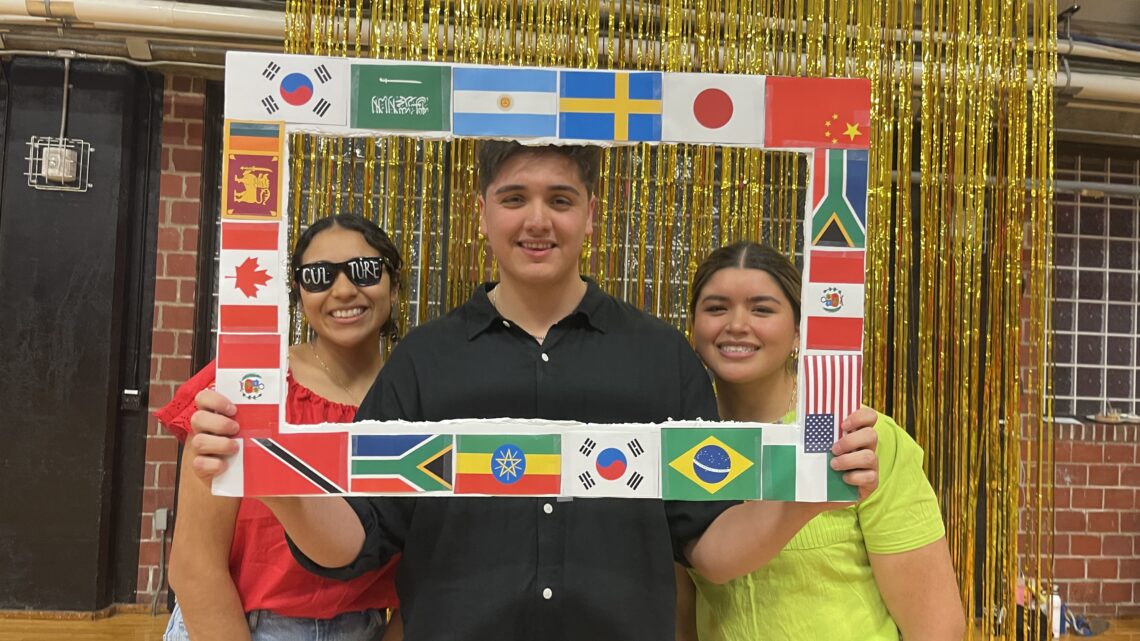“Culture shock shoved the loneliness into me,” Dureti Olana expressed with a distant look in her eyes. Her winter-blitzed lips annunciated vague sadness as she uttered those words to me. Loneliness plagued her, and she wasn’t the only one who felt this way. Several others did. Those called “international students.”
No one really talks about loneliness, especially among Union Adventist University students.
It’s already hard enough to be individuals from different walks of life trying to navigate the four walls of a university. But what more do students feel who traveled thousands of miles across oceans to a country where they had to start afresh? That itself is terrifying.
International students studying abroad in the United States is nothing new. In fact, exchange students have been around since the origin of the word “school,” but recent years have seen a significant influx of students from all over the globe into the United States for study.
According to research conducted last year by Statista for Higher Education, international students make up 5.6 percent of the total U.S. student population. At Union, they make up 5.87 percent.
Once in the host country, these students face a new way of life, different ideologies, and oftentimes no community to fall back on. One might ask what makes loneliness for an international student different from the average college student. I’ll answer that: the sudden transfiguration of a once controlled life to a fast-paced society with no foundation in the culture.
For students like Dureti, the culture shock that comes with arriving in a liberal country such as America is enough to make one feel singled out and backed into a corner. Used to a communal life in her faraway home of Ethiopia, where neighbors were secondary caretakers of her property and welfare, she was surprised to discover the “individualistic” mentality of her new host country. In her words, “In America, it is out of sight out of mind.” She explained that people don’t think about you when they don’t see you.
Culture shock isn’t the only harbinger of loneliness for international students.
Tracy, an aspiring occupational therapy assistant from Kenya, has been a student at Union for two years. In that duration of time she suffered recurring mental breakdowns. Her stumbling blocks were the severity of her workload and homesickness with no one to run to. Over time she has gotten past that loneliness or has learned how to hide it better. Most international students rarely speak of loneliness and the boring routine of their lives for a single reason: the fear of sounding ungrateful.
In a perfect world with no injustice, hunger or marginalization, most international students would rarely step off the shores of their country save for personal interests and curiosity. But the quest for greener pastures and a chance to earn a place at the table has propelled these students into the bigger unknown with their fates and the fates of their loved ones back home in their palms. To complain would be a travesty of providence. A quote from the Igbo people of Nigeria says,
Those whose palm kernels were cracked for them by a benevolent spirit should not forget to be humble.
This was the mantra of many international students like Tracy, and as a result of self-silence, they back themselves into the cold arms of loneliness.
Not every international student, however, experiences loneliness to the same magnitude.
For Elvin, a Union computer science major from Rwanda, loneliness visited only when he was away from the gym, video games and arcade games. “You just have to find your tribe, especially people who will motivate you to keep pushing,” he stated over a game of checkers.
Finding like-minded individuals and a warm community might sound easy, but it is a daunting task, especially to students who are more reserved in nature.
This is where the already existing community can take the reins to spread warmth and welcome international students into the fold of belonging foremost as humans and essentially as Christia
ns. Many times I have received help, guidance and assistance from wonderful individuals who made sure I settled in quite well the first few months after I arrived in the United States. So on days when loneliness would rock my boat, I remained steadfast from the single assurance of a community, no matter how small.
There are various ways to spread warmth to international students. Care packages addressed to them, Thanksgiving dinner invites, and even a single note of reassurance and kindness would be a monumental display of connectedness. This will encourage togetherness and the type of fellowship spoken of in Romans 12:5:
So we, who are many, are one body in Christ, and individually members of one another” (NKJV).
Through connectedness and community, loneliness is vanquished. A true act of goodwill sparks another.

Fortune Ogulere is a sophomore English major from Imo State, Nigeria. With a pen dipped increativity, he weaves prose, poetry, and thought-provoking pieces. He enjoys painting, singing, and eating ice cream. His debut novel is currently in the works.








